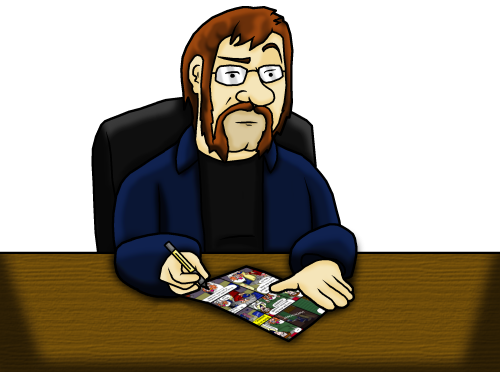Let’s Start the Year (Again) Part 2: Do Androids Dream of Electric Blue Willows (RIP Willow)
“The light that burns twice as bright burns half as long – and you have burned so very, very brightly, Roy.”
That’s one of the better quotes from Blade Runner. It’s what Eldon Tyrell tells Roy Batty when he delivers the bad news that, no matter how much they have tried, the Nexus-6 robot will never live longer than four years. A near-perfect, beautiful specimen whose only flaw is that they live for a fraction of the human lifetime.
Willow died yesterday1.
I consider it irony in several ways, given the previous day I had only just published a blog post that featured two pictures of her. We had only just got her back in the flat for barely under a week and a few days after Sam’s birthday she suffered a bit of a flutter and breathing problems, and then passed away in my hands peacefully, surrounded by her loving, crying humans.
I silently cursed the god I don’t believe in and briefly wondered if it was revenge on a celestial scale. Only half an hour before Willow showed any signs of weakness, me and Sam had been chewing pancakes and jokingly calling the god in the Old Testament “a bit of a dick really, but then he had a son and calmed down a bit in the New Testament”. It’s funny how grief works, really. We look to blame everything but natural entropy.
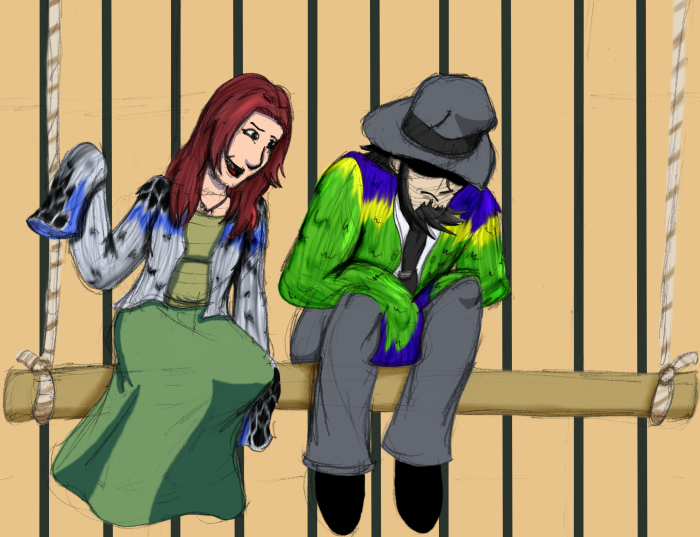
Willow was, basically, a bird. Thousands of people die every day (possibly every minute?), many in tragic circumstances, and yet a beloved pet dies and suddenly our personal world-view gets tainted. I’m not going to “big up” Willow but I would like to take the opportunity to discuss Do Androids Dream of Electric Sheep?, the book Blade Runner was based on. I consider the best tribute I can do for such a simple creature like Willow is to wax philosophical about “the bigger picture”.
Blade Runner was an excellent film with cinematography that is lauded to this day. However, it does miss out a massive chunk of the source material – specifically, the bit about pets2. DADoES3 takes place after the final world war, the one where the bombs fell and the atmosphere filled with radiation. Most of the planet’s population has emigrated to the colonies on Mars, and those who remain are at risk of the ever-present radiation that threatens to degenerate their bodies.
One of the biggest impacts of the war was the mass-extinction of many of the planet’s animals. Owning a real animal is seen as a status symbol, much like owning the latest sports car. The rarer the animal, the more admiration you receive (mostly because you presumably paid through the nose for the animal).
The other impact of the war is the proliferation of machines replacing living beings. Electric animals are seen as the lesser, cheaper option of owning a pet and is considered an embarrassment for those forced to own a “fake pet” 4. Along with the animals, there are human-shaped machines (or androids, “andys” for short) built to serve mankind. The bit that Blade Runner did get right is that occasionally androids get fed up of being slaves on Mars and head to the desolated Earth in a bid for freedom, thus requiring the need for bounty hunters to take them down as escaping andys tend to kill a lot of humans in their bid for freedom.
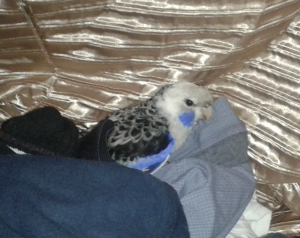
Do Androids Dream is a dour little tale where it is sometimes intentionally difficult to tell who is a jaded human and who is an unfeeling android. There’s one moment where protagonist Deckard encounters an entire police station separate from the one he works for and it becomes immediately blurry as to which police station is fake, populated by androids, and which is the real deal5. The main theme of “what makes us human” centres on the idea that it is empathy that separates us from the machines. Deckard’s “Voight-Kampff” empathy test, the one featured in Blade Runner, tests for the autonomic response for questions regarding the subject’s ability to empathise. It works to detect androids, who cannot empathise, but has flaws in that person being tested can ruin the test results with misleading answers or humans with limited empathy may test positive as an android. Empathy is so important to the post-war human race that an entire religion, Mercerism, relies on the masses turning to their “empathy boxes” in order to feel everyone’s else’s suffering manifest in the form of an old man climbing a mountain being pelted by rocks6.
I found the story absolutely fascinating. Blade Runner by comparison is a very shallow story, featuring a mess of unexplained bits and pieces cropped out from the bigger picture.
Do I believe that empathy makes us human? Not entirely. If we, as a species, lived for empathy then we would not ever be able to commit the daily atrocities that decimate each other and the planet. Empathy plays a key role, though. Without empathy we wouldn’t be able to befriend animals, we wouldn’t instil human personality on to them. We wouldn’t feel joy when they were happy and love when they loved us. We wouldn’t feel for them when they hurt and we wouldn’t grieve for them when they, ultimately, pass on.
I miss you already Willow, and Sam misses you too. I think Jigen might have just realised you’re not coming back too, he’s not dancing as much as he usually does.
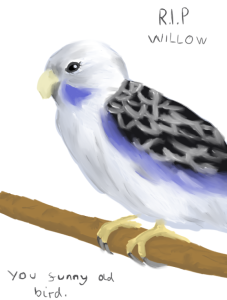
An Obligatory List of Willow’s Characteristics
Whenever I lose a pet, I write down the things that defined them because in a few months I’ll forget all about them. It’s a silly little exercise but, in some way, a little part of Willow will forever be preserved here as long as I have a website.
Willow…
- Loved her fruit. Towards the end of her life we mocked her for being a one-track mind, not realising all the sleeping and eating might be a sign of old age. Sorry Willow, we didn’t know. Still funny though.
- Gave no f*cks about anything, including Jigen being a spaz. Except when she’d see a bird or lorry, then she’d lose her shit with a slightly deeper chirp than Jigen.
- Would intentionally shovel all the food on to the floor so she could collect it later, knowing that Jigen wouldn’t bother.
- Would slide down the side of the cage and then ‘plop’ down on to the floor to get the aforementioned food.
- Always, without fail, got stuck in corners and niches whenever she was out of the cage.
- Knew how to get back inside the cage, unlike Jigen.
- Could actually eat fruit without dropping it. Would sometimes just drop food if Jigen was showing interest in it as if to say “there, now nobody has it”.
- Would copy Jigen’s bar chewing. For hours.
- Had such lovely plumage7.
- Was always the easiest to catch as she’d always crash into a wall.
- Didn’t quite ever want to sit out your hand, but she would sometimes.
- Would dance to her own beat, whenever Jigen strutted his stuff. A sort of quaint chicken dance.
- Would just stare at Sean in mild disgust whenever he jokingly played Will Smith’s “Willow is a Playa“.
- Was ambiguously female. Part of the reason we named her “Willow” was because my Mum said her colours reminded her of her willow-pattern plates. It was a very good name as we never did find out for sure if Willow was a girl and the name worked for both a male and a female! Willow takes her official gender to the grave with her.
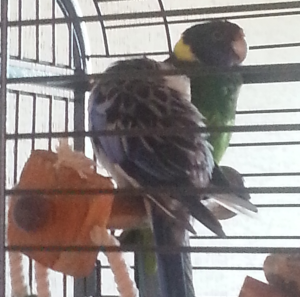
P.S.
Of course I have video footage of the playa!
- Part 2 of this series of posts was originally going to be some old rubbish about how I hoard empty toy boxes, which will now be part 3 in light of this. ↩
- You might suddenly see the link between the loss of my pet bird and where I am going with this. ↩
- Not a great acronym, which is why a lot of people call it “Do Androids Dream” or “Electric Sheep” for short. ↩
- Main character Rick Deckard himself owns an electric sheep at the start of the story, something Blade Runner omitted along with his wife. ↩
- My conclusion is that neither was entirely, 100% real but that’s the beauty of ambiguity. I’m also fairly certain that Deckard’s boss Harry Bryant, despite apparently working for the “real” police, is an android with an agenda. ↩
- It sounds silly but is this a million miles away from everyone watching TV at night and then discussing how they felt about it the next day in work? ↩
- Yes, a Monty Python reference. She looked quite a lot like the bird in the sketch and I can have quite a morose sense of humour. ↩
Post by Sean Patrick Payne+ | February 18, 2015 at 9:35 pm | Real Life | No comment
Tags: birds, Blade Runner, Do Androids Dream of Electric Sheep?, I'm overly emotional and quite a sensitive person, oh goody let's talk about real life for a change, RIP, Willow
